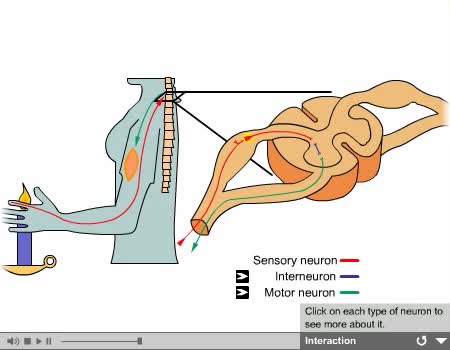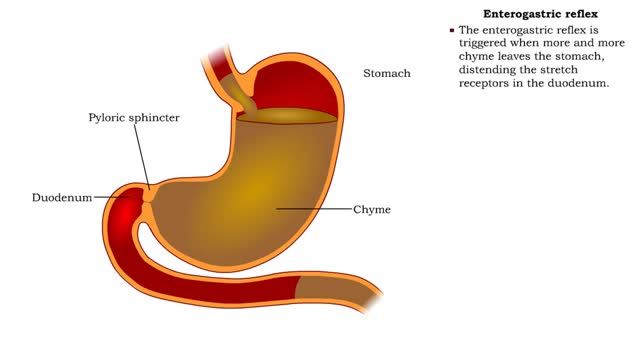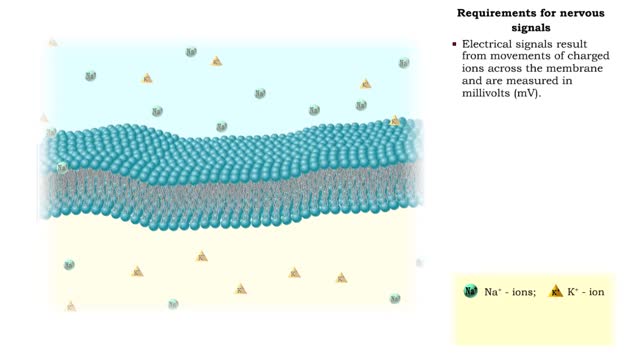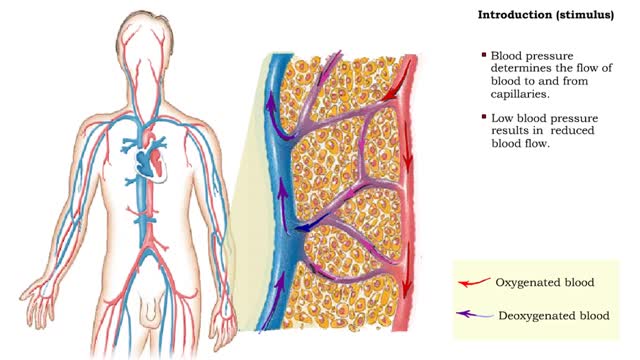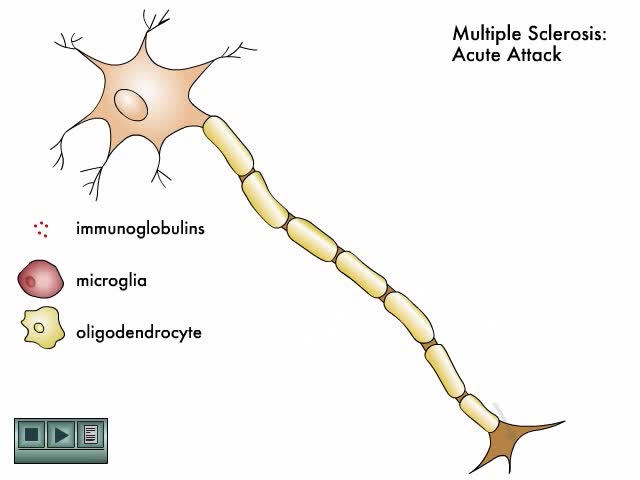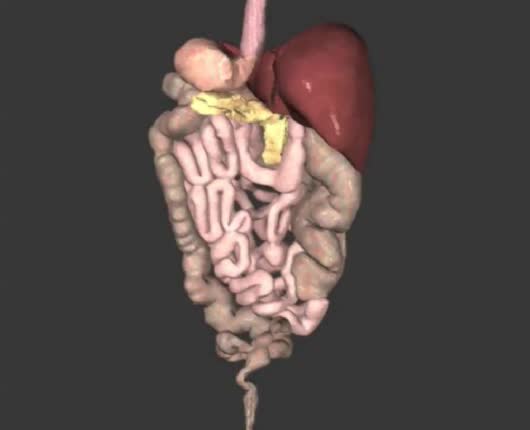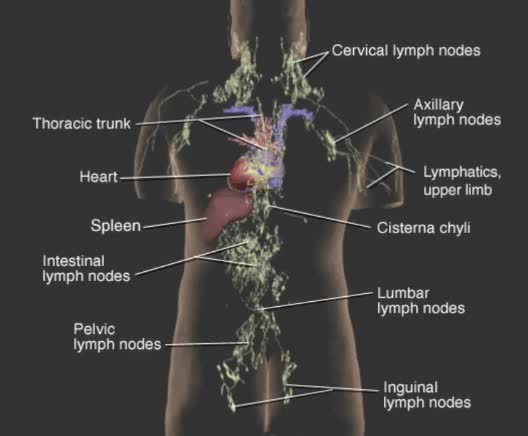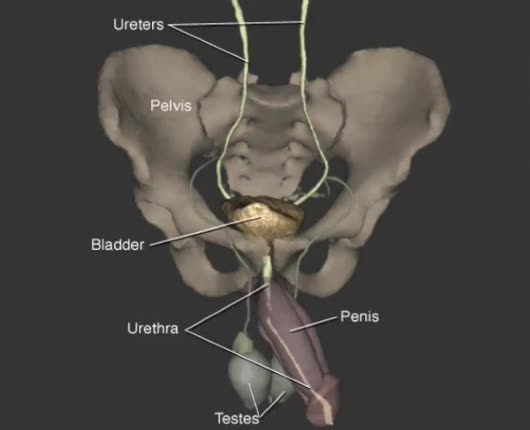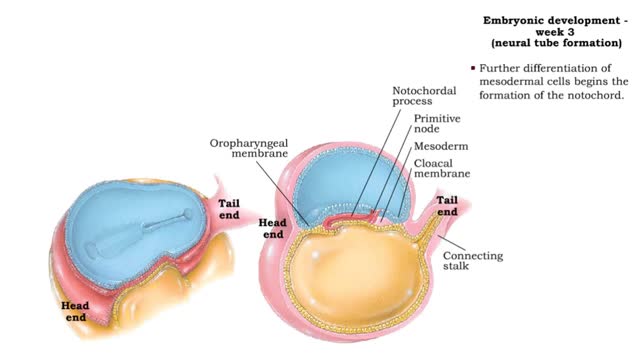Search Results
Results for: 'Nervous System'
By: Administrator, Views: 13584
Interneurons: - Are called central or associative neurons. - Located entirely within the central nervous system. - They function to mediate impulses between sensory and motor neurons.
Stomach peristalsis & Enterogastric reflex
By: HWC, Views: 9940
• Food enters, distending the stomach. • Stretch receptors activate enteric reflexes that promote peristaltic movements. • These movements, called mixing waves, begin to mix the food with stomach secretions. • Mixing waves force the digesting food (chyme) toward and through the pylo...
Requirements for nervous signals
By: HWC, Views: 10422
• The function of neurons is to allow communication between cells, thereby maintaining homeostasis. • Electrical signals, called membrane potentials, travel along the membranes of the neurons. • Voltage variability and distance traveled determine the type of nervous signal. 1. Graded...
By: HWC, Views: 10199
• Blood pressure determines the flow of blood to and from capillaries. • Low blood pressure results in reduced blood flow. • High blood pressure can cause blood vessels to break. In humans, sensitivity is due to portions of the nervous system called receptors. Receptors are typicall...
By: Administrator, Views: 13746
Multiple sclerosis (MS) is a demyelinating disease in which the insulating covers of nerve cells in the brain and spinal cord are damaged. This damage disrupts the ability of parts of the nervous system to communicate, resulting in a range of signs and symptoms, including physical, mental, and so...
By: Administrator, Views: 13738
Digestive system contains both primary and accessory organs for the conversion of food and fluids into a semiliquid that can be absorbed for the body to use. Three main functions: - Digestion - Absorption - Elimination With aging: - Digestive system becomes less motile. - Glandular sec...
By: Administrator, Views: 558
Blood and lymph are two of the body's main fluids and are circulated through two separate but interconnected vessel systems. Blood is circulated by the action of the heart, through the circulatory system consisting largely of arteries, veins, and capillaries. Lymph does not actually circulate. ...
By: Administrator, Views: 1440
The urinary system: kidneys, ureters, bladder, and urethra with expanded view of a nephron and the urine-filled space within a bladder. Urinary system: two kidneys, two ureters, one bladder, one urethra. Also called the excretory, genitourinary (GU), or urogenital (UG) system. Produces, stor...
Embryonic development - Week 3
By: HWC, Views: 10596
Week 3 (gastrulation) • Three primary germ layers are formed which provide cells for organ formation in the following months. • These germ cell layers are formed by a process known as gastrulation, which involves rearranging epiblast cells. • As cells from the epiblast migrate, a fain...
Advertisement



